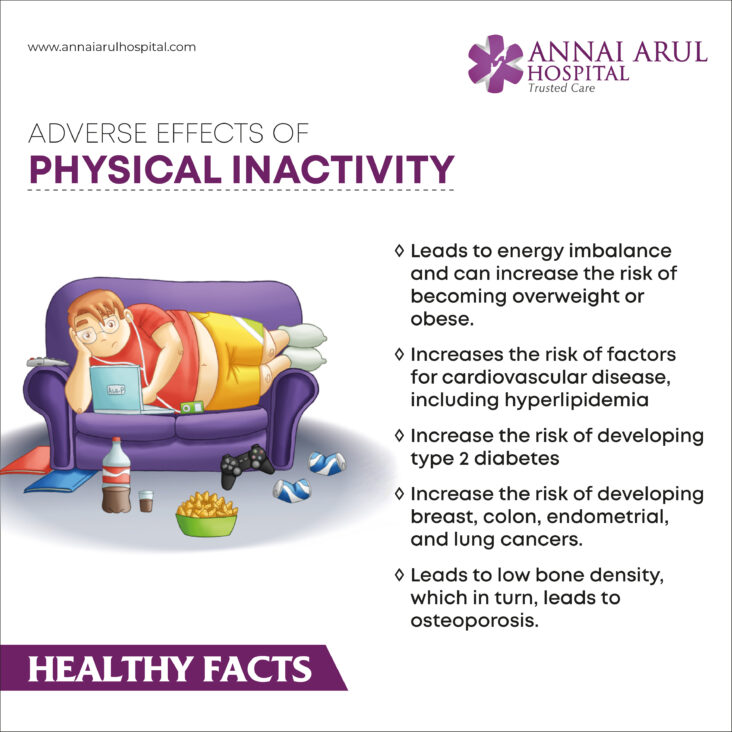
Spending a longer time in your toilet to complete your morning routine?


Spending a longer time in your toilet to complete your morning routine?


Introduction:
Did you know that obesity is now considered a noncommunicable disease? This means that it’s not contagious and cannot be passed from one person to another. Unlike communicable diseases, which are caused by germs and can be treated with antibiotics, there is no one single cause for obesity. It’s a complex condition that is caused by a combination of factors, including genes, lifestyle, and environment.
1. What is obesity?
Obesity is a condition in which someone has an excessive amount of body fat. In order to be considered obese, your Body Mass Index (BMI) must be 30 or higher. Obesity is not just a cosmetic issue; it’s a serious health condition that can lead to a number of chronic diseases, including heart disease, stroke, type 2 diabetes, and cancer.
2. Causes of obesity
Obesity is a noncommunicable disease, which means it is not contagious. For years, scientists believed that obesity was the result of a simple equation: calories in versus calories out. If you ate more than you burned off, you would gain weight. However, researchers now know that this equation is not that simple. There are many different factors that contribute to obesity, including genes, environment and lifestyle choices.
3. Consequences of obesity
Obesity is a noncommunicable disease, which means that it’s not contagious and you can’t catch it from someone else. It’s a chronic condition that can result in a range of health problems, including heart disease, stroke, type 2 diabetes, and certain types of cancer. In fact, obesity is now recognized as one of the leading causes of preventable death worldwide. That’s why it’s so important to take steps to prevent obesity from developing in the first place. Making small changes to your diet and lifestyle can have a big impact on your health—and your weight.
4. Why is obesity a noncommunicable disease?
Obesity is a noncommunicable disease because it’s not caused by a pathogen or other infectious agent. The main cause is excessive body fat, which can be the result of eating too many calories, not getting enough exercise, or a combination of both. When people are obese, they’re at risk for a variety of health problems, such as heart disease, stroke, type 2 diabetes, and cancer. That’s why it’s so important to prevent obesity in the first place by making healthy choices about food and exercise.
5. How to prevent obesity
Obesity is a serious problem. It’s not just a cosmetic issue—obesity is a major risk factor for noncommunicable diseases like heart disease, stroke, cancer and diabetes. In fact, obesity is now considered a pandemic, and it’s one of the biggest health threats facing the world today. Thankfully, there are things you can do to prevent obesity and keep yourself healthy and happy. Here are a few tips:
1. Eat healthy foods and avoid processed junk.
2. Get regular exercise.
3. Drink plenty of water.
4. Avoid sugary drinks and junk food.
5. Make sure you’re getting enough sleep every night.
6. Manage your stress levels.
Conclusion:
Obesity is a noncommunicable disease that is preventable. It is caused by genetic and environmental factors, as well as behaviors. Obesity has serious consequences, including heart disease, diabetes, and cancer. It is important to eat healthy and be active to prevent obesity.


Sleep apnea is a common but serious sleep disorder in which breathing repeatedly stops and starts. If you have sleep apnea you may have more than 30 pauses in breathing per hour. Each pause can last from a few seconds to minutes, and they may occur 30 times or more an hour. Typically, normal breathing then starts again, sometimes with a loud snort or choking sound. Breathing pauses can occur 5 to 30 times or more an hour. Severe sleep apnea means you have more than 30 pauses an hour. When your breathing pauses or becomes shallow, you’ll often move out of deep sleep and into light sleep. As a result, the quality of your sleep is poor, which makes you tired during the day. Sleep apnea is one of the leading causes of excessive daytime sleepiness
The pattern of stopping and starting can lower the level of oxygen in your blood, increasing your risk for high blood pressure, heart attack, stroke, obesity and diabetes.
Sleep Apnea can leave you feeling tired and sleepy during the day
If you have sleep apnea, then you may find yourself waking up in the middle of the night or else waking up feeling tired and groggy no matter how much time you spent lying in bed. Sleep disorders such as sleep apnea can also leave you experiencing daytime fatigue, even though you slept enough hours at night. If your partner is keeping you awake with their loud snoring noises, your sleep apnea could also be affecting their restful sleep. Sleep apnea can cause people to become irritable and restless during the day, and it can lead to serious health issues that include heart disease in the future if left unchecked.
Risk Factors of Sleep Apnea
The risk factors of sleep apnea include:
Age: The chance of having sleep apnea increases with age.
Sex: Men are twice as likely to have sleep apnea compared to women. However, women become just as likely to have sleep apnea as men after menopause.
Being overweight: The more overweight you are, the greater your chances of having sleep apnea. Having large tonsils or adenoids, a large tongue, or a small jaw bone: These physical attributes can contribute to the narrowing of your throat, which can cause obstruction and block the flow of air into your lungs while you’re sleeping.
Family history of sleep apnea: If other members in your family suffer from this disorder, then you are more likely to develop it too.
Central sleep apnea
Central sleep apnea occurs when your brain is unable to send the signals that control your breathing. As such, this type of sleep apnea is characterized by apnea episodes throughout the night. These episodes can occur more than 20 times per hour and cause low oxygen levels in your blood. Central sleep apnea can be caused by a malfunctioning central nervous system or as a side effect of other conditions such as heart disease or stroke. If you have central sleep apnea, it will likely require treatment with medication to correct.
Obstructive sleep apnea
The most common kind of sleep apnea is obstructive sleep apnea. This happens when your throat muscles relax during sleep. These relaxed muscles then block your airway and make it become narrower. This causes the walls of the throat to vibrate, which makes the sound of snoring.
Complex sleep apnea syndrome
Complex sleep apnea syndrome (CompSAS) is a condition that causes people to have both obstructive sleep apnea and central sleep apnea. It’s rare, but more likely to happen if:
● you’re male● you have a high body mass index (BMI)
● you’ve had a stroke
● your brain isn’t able to control your breathing well enough
People with CompSAS are at risk for serious complications. They may need treatment with more than one device, such as an oral appliance plus CPAP. Other treatments for obstructive sleep apnea or central sleep apnea may also be recommended.
Abdominal causes of snoring in adults
This is the most common cause of snoring. These are some lifestyle changes you can try:
● Sleep on your side instead of on your back. Try sewing a tennis ball into the back
of your pajama top to keep from rolling over onto your back when you sleep. Or, if
this doesn’t work for you, ask your doctor about prescription options and special
pillows that may help prevent rolling onto your back while sleeping.
● Lose weight if you are overweight or obese. People with a lot of body fat
sometimes have extra tissue in the throat that can vibrate when breathing in air
during sleep, causing snoring.
● Avoid alcohol before bedtime. Alcohol causes throat muscles to relax more than
usual and increase their potential to collapse and block airflow during sleep,
leading to snoring sounds. In addition, stop using sedatives, antihistamines, or
other medications that may relax throat muscles or reduce alertness before going
to bed. In addition:
● Eat smaller dinners at least two hours prior to bedtime because lying down too
soon after eating can put pressure on your diaphragm and make it difficult for air
to flow freely through your throat during sleep as well as cause snoring.
Causes of snoring in children
Snoring caused by an upper airway obstruction can be caused by a number of different things. The following are some common causes of snoring:
● Nasal congestion (your child might have allergies or a cold)
● Large tonsils and adenoids (you can’t see these parts of your body, but they’re
located high in the throat)● A small jaw
● Inborn problems with the nose, mouth, or throat (such as a cleft palate)
● Allergies, sinus infections, and asthma (which cause nasal congestion)
● Obesity (being overweight) because extra weight puts pressure on the upper
airway. This can narrow it and cause snoring and other sleep problems.
● Poor muscle tone in the tongue and throat
Non communicable diseases are chronic and can be very difficult to cope with. There is no cure for most of these diseases, and the best way to deal with them is through treatment. The symptoms could be mild or severe, and it is important to see a doctor if you notice any of them. However, the good news is that there are a few that can be cured completely, if diagnosed early and treated properly. Some of these diseases include:
● Hernia
● Some types of cancer (skin cancer)
● Gallstones
● Kidney stones


Orthopaedic & Trauma Care
*Arthroscopic Surgeries
*Joint Replacement Surgeries
*Minimally invasive spinal surgeries
*24/7 Trauma care and emergency services
*24/7 availability of specialists in orthopaedics, neurosurgery, plastic sugery and rehabilitation medicine.
I am text block. Click edit button to change this text. Lorem ipsum dolor sit amet, consectetur adipiscing elit. Ut elit tellus, luctus nec ullamcorper mattis, pulvinar dapibus leo.


*Leads to energy imbalance and can increase the risk of becoming overweight or obese.
*Increase the risk of factors for cardiovascular disease, including hyperlipidemia.
*Increase the risk of developing type 2 diabetes.
*Increase the risk of developing breast, colon, endometrial and lung cancers.
*Leads to low bone density, which in turn, leads to osteoporosis.